Welcome to the GC Podcast, a podcast to help you develop into the healthiest ministry leader you can be by sharing practical ministry experience. Here are your hosts, Cara Garrity and Charissa Panuve.
Cara: Hello friends, and welcome to the final GC Podcast episode of 2022. I’m so, pleased to have Charissa Panuve here helping us close out the year.
So, thank you, Charissa, for helping us end the year strong.
Charissa: Thank you, Cara, for having me and giving me the opportunity to be here. I’m so, excited to help close out the year.
Cara: Oh, yes. And as we’re closing out the year with GC Podcast, we’re all likely preparing to close out the year in a lot of different ways. And the end of a calendar year is often a good time to reflect on what lays behind and what’s coming ahead.
What is one of your favorite reflective practices?
Charissa: Ooh well, I am a water baby, after all. But not so much that I want to still be in the pool. So, I do enjoy sitting in the shower.
And if I’m not singing along to my worship playlist, I like to think about all the things that have happened in the past year, per se, and reflect on God’s hand in my life. And just look at it in detail because it may not have been as visible in that moment.
And thinking through all that, does make me excited to see how God will continue to work, not only in my life, but those around me as well. And knowing that he will never leave me or forsake me is so, comforting.
Cara: Amen. Thank you for sharing that with us. I think that reflection is a really meaningful spiritual practice and we all do it in different ways, but like you said, remembering the faithfulness of God through reflection is really powerful.
Even as we reflect on this year on GC Podcast, we’ve been exploring the Love Avenue and our theme “Compelled by Love” throughout the year. So, I thought it would be appropriate to close out the year by returning to this idea of being “Compelled by Love.”
And it’s good to explore best ministry practices of the Love Avenue. What are the things that we can do? What are some things that are good practice? But if we forget the who and the why, at the end of the day all the best practices are busy work or they’re just noise.
Charissa, what does it mean to you to be compelled by the love of Christ in witness and in mission?
Charissa: To me, it would mean that whatever we do or say should be with the thought of how Jesus loves in the back of our mind. For me personally, I get triggered very easily and it’s something that God has been working with me on. But yes, in those times when I feel like someone is purposely pushing my buttons or I’m just having a low day where I feel like everyone or everything is against me, I have learned to make it a habit to remember that emotions are temporary, and we shouldn’t let what we feel trump what we know and that makes sense.
But if we know that Christ died for us and he loves us unconditionally and he made us in his image, then these emotions that are not of God should not overrule the knowledge that God loves us unconditionally, and he wants that for us as well.
Cara: Yeah, that makes absolute sense, and I think it’s a really powerful formative practice. I appreciate you sharing that with us, Charissa.
And so, now let’s go ahead and turn to our interview with Takalani Musekwa.
Cara: Hello friends, and welcome to the latest episode of GC Podcast. This podcast is devoted to exploring best ministry practices in the context of Grace Communion International churches.
I’m your host Cara Garrity, and today I am so, happy to interview Takalani Musekwa. Takalani is a GCI Regional Director of Southern Africa.
Takalani, thank you so much for taking your time to join us today on the GC Podcast.
Takalani: Thank you so much Cara. I’m really glad to be here. Looking forward to this conversation.
Cara: Yes, so am I. And today I’m really excited because we’re going to be wrapping up our theme of the year, “Compelled by Love,” where we’ve been focusing on the Love Avenue and ministry practices within the Love Avenue. And so, when we think about the Love Avenue, one of the things we’ve been talking about is the truth that our God is a sending God.
And so, for you, Takalani, what does it mean to live sent?
Takalani: I think if you look at it, we don’t really have an option as believers, as the church. Jesus said, as the Father sent me, I send you. And I think it’s who we are as the church. It identifies our role in the world.
One writer said, we exist for mission. And that’s what the church’s primary purpose is. And he said the church that forgets that becomes a social organization. It becomes anything else other than that. And I think it’s important that as a church, we keep this center of mind, that Jesus, when he left, he said, I send you.
And so, we live in the world as a sent community. And I think it’s important. For me, that’s what it means. It means it defines who we are as believers. So, it’s not something that, it’s one of the things we do. It’s who we are. It defines who we are. So, for me that’s what it means to be sent.
And it’s a privilege because God sent his own Son into the world and the Son wants to share that sending with us. He wants us to participate in that work. And so, for me, that’s very privileged work. And if we can see it that way, that we are participating in something that is privileged.
But God said — Jesus himself said, Look do not think that you are so special. God can raise stones if he needs to. So, for us to do this, it’s not because God can’t do it himself, but it’s because he chooses to do it with us. He chooses to see us participate. So, that’s for me where the privilege lies, that this is not because God is desperate for us, but it’s because he wants us to be participants in what he’s doing in the world.
And so, it’s a very special privilege to have as believers.
Cara: That is so beautifully said. Thank you, Takalani. And this idea, or not the idea, but the truth, that it’s about who we are, not just something that we do, I think is so powerful. And when we’ve been talking about the Love Avenue this year, we come back to this theme of “Compelled by Love”.
I’m wondering what difference does it make when it’s the love of Christ that compels us to live lives of sent-ness?
Takalani: Yeah. That’s important because often—we know from the very early church, Peter writes about it, Paul writes about it—there are many who come into the church for many other reasons, and they do what they do for many other reasons. We can do this because we want to seek respect. We can do it because we want honor, acclaim and popularity and acceptance.
But those are not the drivers of what we do. Jesus was saving the world not because he was going to be popular, not because he was going to be accepted, not because he was going to be respected or honored. In fact, many times he was treated very poorly for who he was, and he died a very shameful death.
So, those are the things that we should—I think that’s probably, if you like, the biggest stumbling block to us doing the work of being sent, of sharing the love of God with the world because where we are not likely going to obtain the honor, the respect, and the acceptance and popularity, we find that we don’t want to get involved in that.
And our world today is full of that. We find people who are doing this because they are seeking after popularity, they want to be famous and all those kinds of things. That’s why they do what they do. They want to get the seats in the front, in the front seats. I don’t know the way it is in the U.S. (we see on TV), but here on the Continent [of Africa] to be a pastor or called an evangelist or anything, some churches, anybody is called a pastor, if you are a man, for that matter.
So, whenever you arrive, then you are treated like that because you are a church person. You’re given the front seat and so on. So, some people do it for that reason, and I think that’s the sad part. We need to understand that our mission is to share the love of God with the world and that love may be rejected, just as Jesus himself was rejected.
He did say that just as they rejected me, they’ll probably reject you. Just as they persecuted me, they’ll probably persecute you. So, we don’t do it for those reasons. We do it despite those reasons. We understand that Jesus died for all humans. Whether they know it or not, that’s what has happened. And we need to continue to share the good news whether they reject us or not.
When Jesus sent the 72 and I find that very fascinating for me, that he sends—in the Book of Luke—he sends the 12, and then he sends the 72, almost to say, I’m not just sending the 12. The 72, for me, represents the rest of us who are not pastors, who are not leaders in the church, but it’s actually a mission for all of us.
And then when he sends them, he tells them, Look, you go, and you do this. And if they don’t accept you, you move on. Don’t worry about whether they accept you or not. You just need to do what you are sent to do until you find the men of peace, until you find those that accept you. And you just keep preaching.
But the bottom line is we need to reach out whether we are accepted or not, whether there is a progression or not, because there’s a time when we are driven, and I see it as a trap too. We can fall into that trap. We are driven by simply wanting to increase the numbers. That whatever Love Avenue activities we do, it’s driven primarily by whether it’ll add people into the seats in our churches.
I think we need to see beyond that. That God is doing much, much greater work beyond that and that’s, I think, what we should be mindful of because if that becomes the driver, then we lose sight of what we’re trying to do.
I’m in the corporate world. We’re not different to marketing people who are simply trying to get more business. And that’s not what we are about. We are about sharing the love of God to the world. It might end up that people don’t necessarily come into a church, but the seed we have planted might grow 20 years down the line, 30 years down the line.
And that’s for me the pressing matter—is to understand that God is working in people’s lives. And he may not do it today, but the seed we plant today might find fruit in five years. We’re no longer even there, so, we won’t see it. It’s about understanding that God is at work, and therefore whatever we do won’t necessarily generate results that we can see.
I think it’s important that the love of God is what drives us. The love that Christ had. Christ wept over Jerusalem, and that’s the love that we need to have. Paul, in the Book of Romans 9, he talks about how his heart aches to see the people of his world saved.
He yearns for that. He yearns to see he was saying—he even says, I wish I myself could be condemned and outcast if only my people could be saved instead. And I think that’s the kind of sacrificial love Paul had for the people of Israel. And I think if all of us could have that kind of love for our communities, for our villages, for our cities, for our neighborhoods, to say I would love to see my neighborhood saved. I would like to see my city saved.
Even if it were to mean I’m outcast and I’m abandoned, but if they could be saved. That’s the kind of life Jesus lived, to say, even if it means me dying, that they could be saved. That’s what it means. And I think that’s where we need to get to. Where we genuinely love the people, that we seek their salvation above all, besides, despite us not getting anything in return for that matter.
So, I think that’s for me what the primary thing is. If we don’t have that, then a lot of the other things come into play and are driven by selfish motives which eventually gets exposed because the people can see that we’re not really loving them for who they are.
Cara: That is a really powerful word.
And even a challenge. You mentioned that word stumbling block, that there are things that we can allow to get in the way. There are other things that sometimes we allow to motivate us other than the love of Christ, but it is only the love of Christ that can truly compel us to be sent in a way that is real and true and genuine because it’s the only thing that’s lasting.
And Takalani, could you speak a little bit to some—you mentioned a few, but what are some of the other things that you’ve seen can sometimes motivate us to be sent or to participate in Love Avenue activities? And then what’s the risk when we allow those things to be stumbling blocks? When we allow things other than the love of Christ to compel us?
Takalani: Sometimes we can do it out of guilt, for example. Sometimes it might feel that if we don’t do something, then we’re doing something wrong. So, guilt can be the driver where we’re doing it out of guilt.
We can do it sometimes even out of a feeling of God’s impotence, to think that if we don’t do something people are going to die because I didn’t speak to them. So, when you understand the sovereignty of God over our salvation, that he has not left this in our hands. He left it in the hands of Jesus. Ultimately, that’s what will determine the salvation of people and not what we do or do not do.
However, the joy of us participating in the salvation of people, it’s something that is priceless. I think one of the joys of being in the kingdom is to see people who have come to faith and are sharing eternity with you. And you have played some role in that. And that, for me that’s the one of the greatest joys probably we’ll experience.
Guilt can be a bad driver because when we do that, then we end up doing things that in fact are harmful sometimes. We try to manipulate people because we feel that we have to do something. And if we don’t do something then something’s going to go wrong. We can start sacrificing even ourselves and our families because we have to do this.
And there are some people who are driven like that. They do this because they feel guilty if they don’t do something. They feel if somebody doesn’t believe they have failed God and they have failed those people and those people’s blood is on their hands. And so, there is that part that we should avoid falling to the trap of.
Cara: Yeah. You’re I really appreciate you sharing this.
You’re calling out some really important and deep things here that are so critical for us to explore as we seek to participate in Jesus’s mission and to live as sent people, because sometimes these things can be nefarious.
We think, of course, participating in Jesus’s ministry, living sent, participating in these church activities, what have you, of course they’re holy things, of course, they’re godly things, but sometimes. These different motivations can be sneaky. And those are important things for us to keep in mind. And some of these things you’ve named, that’s really real. We have to have that prayerful discernment and self-awareness.
Are we just motivated by the numbers of people coming to our church activities and services? Are we just being motivated by how important we may feel? Are we being motivated just by guilt or feeling like it’s on us and not truly on Jesus? Is he not enough of a Savior?
That’s really, really a strong challenge.
And a freedom, I think, that you’ve brought to us, Takalani, because when we allow ourselves to be compelled by the love of Christ, I find that there’s a freedom there too. And like you said, a joy and a privilege.
Takalani: Yes. And I think that’s the point—the freedom of it. So, when you do it within the freedom to—I always say sometimes that freedom is not freedom from; it’s freedom to.
And that’s important to understand that when Paul says it is for freedom you have been saved. So, we need to understand that it’s not freedom from something, it’s freedom for something. And it’s about them participating in this with the freedom of knowing that.
Sometimes I see it as us sitting on the lap of a father who’s doing something, maybe washing dishes. You’ve sees these things that you can strap your baby in front of you? You stand in front of them, you’re washing dishes and the baby is also touching the dishes and so, on. When they finish there, the baby will run to mommy and say, daddy and I have been washing dishes.
And I think for me that sort of reflects what we are involved in. That we are participating in something that is so special and so holy and so deep that we can’t really understand it. The word of God is holy. And the fact that God allows our corrupt defiled mouths to even utter it is so special.
And I think that’s the privilege and the freedom we should enjoy and experience, understanding that this is something that God has given us out of his generosity and not because of any need on his side.
Cara: Oh, and what an incredible image you’ve just provided us too. I love that. I love that.
And so, I’m wondering, I think a lot of us, we learn by storytelling. We’re storytelling people. And so, how have you personally grown in being compelled by the love of Christ to live sent? And if you would, could you share a story that brings to life part of what this journey has looked like for you?
Takalani: For me, it has been a long journey. I came to faith when I was still in high school and in the church that I was part of at the time. It was not GCI. I started getting involved in ministry preaching in the local church, getting involved with the youth activities.
And one of the things we did, as the young people—we were in a small community, a village. Effectively, you could walk around the village and be able to go anywhere. So, we started a simple ministry of praying for the fellow church members. So, we would say—and we did on [it] Friday evening, so on a Sunday, we’ll say, the next Friday we’re going to visit your family, Cara, to pray.
And all we did is literally, was to do that. We will arrive at house, we will gather around the sitting or lounge room, and then we will just do the simple greetings, and then we will pray for about 30 minutes to an hour and then we will leave. And we started continuously doing that.
And as we did that, we found that many young people—because as we did that, we in the villages—I don’t know if you’re familiar with or have been to the Continent and been to a village. So, it’s a very communal space. So, as we walk in the street, we’ll see other young boys standing around the streets, hanging around, doing nothing. We’ll tell them what we’re going to do and out of curiosity, they’ll join us.
And we’ll go with them, and they’ll see what we’re doing. We just pray and then we leave. And over time, I was surprised that a lot of young people started coming along, even to join us at church. And then the youth group started growing just from doing that.
And I found that very encouraging to see that just offering people prayers can be a ministry that God uses to reach to us.
And we also then used to have, during the school holidays during December, we used to do about three-week period (the week before Christmas, up to the first week of January), we would go into a hospital. Actually, we have three groups. One group will go into another one village. The other went into another village. Another group will go into a hospital. So, I remember one of the years, my group went to a hospital, and all we did every day for about three weeks was to literally wake up every morning with a schedule of all the wards in the hospital, we’d go from ward to ward.
All we did, we’d go in, sing a song, pray for all the patients in the ward, read a scripture, and then we move with the next ward. And for three weeks we just did that. And by the time we left, a lot of people were very appreciative and some of them were even asking, they would like to go to church when they get back home. And we just said, Look, some of the villages where they come from, we didn’t even have a church. So, we’d tell them, find church when you get home and go there.
So, those are the things that happened. Then I had a near-death experience when I was a student. We were actually traveling from a Passover service where we just had communion, and we were driving back home late at night.
And then we got to a traffic intersection, and our driver for some reason—and I could see. I was sitting in the backseat, and I could see there was a car coming and he somehow didn’t seem to see it. So, he just went straight in, and this car was coming at high speed. And he missed us by inches.
And it was such a close call that if he smashed into us, I don’t know whether we would’ve survived. I don’t think we would’ve survived the speed to which he was driving. And since then, I’ve always thought about my life as being a privilege to be alive. And so, I have this motto that I sign off my emails with, which says, Alive by the grace of God for the glory of God.
Since then, I’ve lived my life, in that light, that I’m alive because maybe God still has something for me to do in this world. Otherwise, he would’ve allowed me to rest. Because the world we live in now is not a world that we all desire to see around us. It’s full of violence, it’s full of evil and so on.
We all yearn for the kingdom of God. So, to be alive in this age, it has to be because God wants us to carry some work and we live by his grace. And all we can do this age, is to live, to glorify him in any way we can. And so, I see my life in that light. It’s about that. All that I do, I do it in that sense, that I view my life as a privilege, here to serve a God.
Like Paul puts it to say, for him to be alive is to be here to continue to minister to the people that God wants him to minister to. But he will desire to be at home with the Lord if possible. And I’m almost to the same spot, that I feel that as long as I’m alive, this is what my life will be.
This is what my purpose will be. And so, my involvement in ministry is driven primarily by that. That I feel that my life is by grace, and it is the yet to glorify God and to share in his glory because that’s what he has done. What we do is glorious. God’s work is glorious. And to participate is to share in that glory.
Cara: Amen. Thank you for sharing part of your story with us. And I praised God for that. And as I listen to you, I can’t help but think about the fact that yours is a life that I hear is compelled by the love of God. And it’s a beautiful thing when we really live in step with that truth that he has for us and that he’s drawing us into and living according to his glory and his purposes.
And so, I really praise God and appreciate you sharing part of your life and his story with you, with us. And I think that there is a sacredness to sharing our stories because God is at work and he is using all of our stories to grow us, to continue to reveal himself to us and to knit us together as a church according to his purposes too.
I think back even to what you said about what it means to live sent—that it’s part of who we are and that’s what it means to be the church. And that if it weren’t for that, we would just become a social club.
I’m wondering what is one way that you can share that you’ve seen your local church being “Compelled by Love”, the love of God in their own neighborhood? And what have you all learned from that?
Takalani: Yeah so, in the last few years, I’ve not been directly involved with the local church because of the role I have now. I just move around a lot. But many of our churches—or let me say some of our churches—are really getting involved.
And I think it’s about also understanding that—let me put it this way, if our history has been that we understood missional work, evangelism to be media-based, it was never something that we do. And when we started feeling that, yes, we need to go out and do this, it became an individual-based thing to say, we need to as individuals do this one on one. Which is correct, which is fine. But I think we need to understand that there is actually various ways to do this.
There’s not one way of doing it. As a church collectively, we have never seen that thus far. And I think for me, the Love Avenue is about promoting the collective activity of the church community in the Love Avenue, rather than limiting this to individuals, talking to individuals whether at home or in their neighborhood.
But we should do it collectively because there is a sense in the sending when Jesus said to Peter, he wants to make him fisher of men. Often in our modern day, at least where I am, when we talk about people going fishing, we’re talking about people going with their rod where they’re throwing a line into the water and they sit there and if one fish catches, then they reel it out.
But the kind of fishing Peter was used to was through nets. It was mass fishing. There was no going alone. You go with others because to man a fishing boat, the nets, and everything, you need somebody else. It’s not something that you do alone. So, they were always in groups in these boats, and they’d throw out the nets as a group.
And sometimes they hauled the net in, nothing is in the net. But that’s part of it. For me, when I look at that kind of fishing, it’s, for me, to describe the kind of Love Avenue activity and programs that we want to see happening where the church community sees itself going out into its community and throwing out its nets.
It might come with nothing. It might come with one fish. It may come with a lot of fish and some of it will be fish that you throw back into the water or they’ll fall back into the water themselves. But it’s about understanding that there is actually the collective part of it. And I think as a GCI community, that’s the part we still haven’t gotten around to yet to understand that evangelism is also a collective responsibility.
It’s something that we do together, not only just individually. We need to learn to do that together. Even Jesus, when he sent his people, as I said earlier, with the 72, he sent them two by twos, not individually. So, I think there is something telling about that, that we must understand that the Love Avenue activity and ministry is not a sole mandate is a collective mandate.
It’s a communal mandate that we do together. And as a church, I think we need to learn to do more of this together. And therefore, having an active, alive Love Avenue ministry in the church is about creating these opportunities for the church to go out into the community together and minister together in the community.
And for me, that’s the part that we need to help our churches to grow into because we have not been a church that does that very well,
Cara: Yeah. And this collective way of participating, I just think about how we’re created in the image of God and our God is a relational God—Father, Son, Spirit, triune God.
We are created for a relationship. The church, his body—even that image brings to mind that we’re not meant only to be individual, as you were saying. And so, that collective aspect, it makes sense when we think about who we were fashioned after. That there are aspects of being sent that we’re not going to be sent just alone but with one another because of who God is and who he has created and called us to be.
And I think that’s important that you’ve named that. That’s something to be learned and to be formed with intentionality and not something that we think we can wake up with one day and it’s just perfect or something, that we think we don’t have to pay attention to, and it’ll just form on its own.
But [it’s] something that collectively, as a community, as a gathering church community, we need to grow in together.
In your travels, as you’ve worked with local churches, what are some ways that you’ve seen local churches building rhythms and cultures of living sent collectively?
Takalani: Yeah so, for example, over the last two years we’ve had a lot of lockdowns. It’s just month or two ago that we got out of lockdown where all the restrictions were lifted, but we lived through a lot of that, and we could not gather except in open spaces in the streets. Churches could not gather in their normal church halls and stuff like that.
One of our churches, for example, they would on a Sunday morning put a speaker out in the street. They would sing some songs, and neighbors will come out and sit in their yards and sing along. And then they’ll serve communion in the street. And some neighbors will come along. They’ll invite them to come along, and they’ll join them in that kind of activity.
So, I thought that was very encouraging because when they started, I think they did it a few times, and when they stopped doing it, the neighbor started asking, Hey why you guys no longer doing this? People began to appreciate that this is something that the church was showing some care to the local community. Because at that time, of course, all churches were not doing anything. People were stuck in their homes. They were missing to go to church.
And the fact that they were now offering this kind of service, and they were offering not only to church, to Christians, [but] to anybody in the neighborhood, to say you can join. And there are some who were not church members, in any church, and they were coming along, singing along, and so on.
And sometimes it’s just about creating that because now they actually have built certain relationships with those communities in those streets where they were doing this. And some of them, in fact, have started coming to their local church because of the relationship they built during those events.
And they used to go out as a church group and do that in the streets because it was something that members, who were yearning to meet, and they could not meet legally without breaking the rules of the restrictions on gatherings and so on. But that came out to be a very helpful initiative.
And at my view, it’s probably something that you can do. And sometimes it doesn’t even have to be church itself. It could be any other activity that you do. More so, with most countries they have public holidays, which celebrate different kind of things. We need to fit into the rhythms of our societies on those days when those things are.
We need to find because, in fact—let me put it this way, There’s something that I learned from a guy who was actually holding a church in a bar every Sunday morning. No, more preaching in a bar than holding a church because those people were not really his church members. And one of the things he said, which sort of stuck with me, was that the gospel is all around us. You literally do not have to carry your Bible under your arm when you go to share the gospel, because wherever you look, the gospel is there.
He made a simple example. He said if you take any newspaper, and you look at the headline in the front page, he said, if you know your Scriptures, if you know the gospel, any headline you read is an opening to the gospel.
He said, if you look at any product, it’s a message. God is speaking through everything that is around us, and we just need to understand that and start using that. For example, he gave an example where he said they went to a restaurant with a friend of his who was not a believer.
And as they were speaking, talking, this friend of his said, one thing I don’t understand with you, my friend, is this Christianity of yours. It just makes no sense that somebody has to die for somebody else, for me to live and so on. It makes no sense. I don’t know why you believe this nonsense.
And he said to him as this guy finished saying that, because he was now practiced, he has trained his mind to always look for hook around himself to share the gospel. He said as this guy said that the waiter was bringing their food, and both of them had ordered steaks.
And as the steak was put on the table, he said to him, look I don’t know why it’s so difficult for you to understand that somebody had to die for us to live. You have ordered that steak there. What happened? A cow had to die for you to eat this and live. In fact, that’s the nature of life. Life comes from life. And the life we have is the life of God. God is the one who gives us this life. And so, it is in the death of Jesus that he gives us his very own life.
And whether you’re eating a vegetable, whether you’re eating meat or whatever, anything that sustains humans unfortunately has to be life. It is life and the only life can sustain life, and that’s the nature of things. So, it can’t be meaningless for you. That’s why we don’t eat stones because they’re lifeless. That’s why we don’t eat soil because it is lifeless. The only thing that we can eat and live is life itself. And that’s the very essence of it.
And so, he said when he said that he made this guy start thinking quite differently because he realized, in fact, it is about that. And he then he started saying, for example, even when people who say they don’t want to eat meat, they’re vegetarian because they don’t want to kill.
He said, look it’s a futile exercise because even the plants we eat, so even if you’re vegetarian you have to cut a cabbage at the prime of its life because you want to eat. It could have still been alive for a few more months before it withers and dies. But for you to eat it, you have to cut it at the prime of its life to be able to eat it.
Even if you do look at the beans and stuff like that, you have to take the life out of them because they have potential to live. If you plant them, they’ll have new life. But for us to eat them is to stop them and take the life, the potential life they have within them and eat it up so, that we can live.
So, the very essence of our lives, it’s exactly that, that life comes from life. And so, I’m saying when you look therefore in the rhythm of our societies, our public holidays, our celebrations here within our communities, whatever they are, there is always a gospel message embedded within those things.
And it’s about us finding that. And as we enter those communities to participate in those activities of the communities, to realize that even within that we can begin to share what God’s Spirit is doing through that. Because God is speaking through everything that’s happening around us. He’s there in the community working because when he begins to speak, people begin to see.
We just need to help them see what God is already doing. And sometimes he’s doing it into the normal rhythm of what a community is doing. And as the people of the gospel, we need to just help them see this gospel that God is already sharing with them, which they probably are not seeing.
Cara: Yes, that is—I don’t even have the words, Takalani. That’s an incredible example because part of developing as a collective, gathering church community this muscle of sent-ness is to actually go. To actually be and to join your neighborhood, like you said, the rhythms of your neighborhood, your community, your town, wherever it is that you are, and to look for what God has already doing.
And so, we can’t nurture, cultivate being sent if we don’t just go ahead and go. I really love that example. As we go, I think, that the story that you’ve just provided shows that we do grow in learning to see Jesus and his good news everywhere as we’re sent.
And so, we become strengthened in his sending of us, and we can continue to develop that together as a community. And then we even come back with those learnings to our gathering church community, and we strengthen one another and then continue to develop with one another in that way.
Takalani: Yeah. And doing that is also life-giving even to ourselves because even as we participate in that, our very own lives become so invigorated because just participating in that is life itself, even for us. So, it’s part of how we, as the people of God, we grow, we live into what we’re meant to be.
It’s about who we are, as I said in the beginning. So, participating in these things is even life-giving to us in its own way. When we come back as a community, we’re encouraged about it. If you look at the stories that the 72 say when they come back and give Jesus the reports, they were so excited about what they’ve seen happening that “we couldn’t believe what we saw at there.”
And you Jesus said, look, don’t be excited about that. Be excited about the fact that your names are written in heaven. And so, he was even to show them, look, this is not about you guys. This is not about what you’re doing here. There is a bigger thing. You are participating in something that’s big.
Your names are written in heaven. That’s why you are involved in this thing. That’s where the excitement is. The excitement is not that we are going out and people are listening to us. The excitement is that we are participating in something big, and our names are hidden with Christ in God. That’s the excitement.
Cara: Amen. Amen. That’s a really good word. And even with what you’ve shared there, I want to highlight too what makes an impression (again, to just bring light to this sent-ness.)
Even with the 72, they were sent—and there’s nothing bad with having activities within the Love Avenue; that’s part of our rhythms of ministry—but there is an importance to the sent-ness, as you’ve mentioned, joining the rhythms that are already established of the community.
The 72 were sent, they weren’t asked to gather everyone. But they were asked to go. And that’s part of, I think, what we’re learning in the Love Avenue, is to go and to get outside of the physical walls or the structures of what we can conceive of as the church that is already gathering and to go out into the world, being sent by our sending God.
That’s an excellent encouragement or reminder for us of what that can look like and why we do that.
And as we’re starting to wrap up our time, what encouragements would you share, Takalani, with any of our listeners who are maybe hesitant or scared, maybe they feel like they’re struggling to live sent in this way?
Takalani: Yeah. For me, firstly, it’s about just getting out there. So, sometimes where we get stuck is in programming. We start thinking, okay, what program should we do? What event? Which should we organize? And sometimes, we don’t even need to do that because the community itself is already organizing event.
And as a church, we can go participate in those events. And as we participate in those events, opportunities will arise in that. Sometimes, I think, we limit ourselves because we think we must come up with activities and invite the community to us. Instead of saying the community’s already having this kind of event, we can go join that event.
And then in the long term, we can even be part of people who organize those events in the future. And then over time, as part of those organizers, it gives us experience into how to organize these community events, how to get people together in the community, how to reach out to them, and so on.
I think one of the things we need to learn is to say, as a church, how involved do we become with our communities? And it’s about literally going into the marketplace, if you like, and say, what is the community involved in? How can we participate in that? And then be able to offer our services, initially just of our services.
Even if you just go with your t-shirts saying, this is GCI, whatever the case may be. And you’re identifiable even as you serve there, that’s all you need to do. It’s not your church activity, it is the community activity. But you are as a church coming in because many community events struggle to find volunteers, and as a church community we can take advantage of that. We can make ourselves available. We can get involved. And as we do that, you’ll find that we begin to have a foothold into the communities and begin to speak into people’s lives. And so, I will encourage our churches to simply begin to see what is happening in their own community.
Get to know what’s in your own communities, and as you identify what’s happening, organize yourselves. If there is a Love Avenue ministry team within your church, plan to then go into these activities, participate, get involved. You’ll find that it becomes natural over time. You become more comfortable with engaging with your community.
And then sharing the gospel becomes something that you do as you go. It’s not something that then you plug into what’s going on without making any sense. You make it part of the rhythm of life that is taking place in that community rather than something that you bring from the outside, because our society today has gone beyond religion. When you come with the Bible, they shut up. They close off. The curtains come down. So, you don’t want to do that. You want to be part of the community. You want to get involved. But as you then engage with people in the community there, then you have an opportunity to begin to share the gospel.
They give you opportunity to begin to speak into their lives. The opportunity for them to begin to look at you and say, this is the life I would like to see.
The people of Israel, when you read in the New Testament, specifically the Book of Acts, we hear about God-fearing Gentiles. These are people who lived alongside Jewish people, and they’ve seen the kind of lives these Jewish people lived. And they said I like the kind of God these people worship. And they themselves were God-fearers; they didn’t become Jews. Many of them were probably not even circumcised. But they became God-fearers.
And over time, I believe many of them became part of the community that was part of the early believers. That on Pentecost, we’re talking about thousands of people believing. These are the kind of people that became believers. They were one foot there already because they had begun to see that there is a God amongst these people of Israel, these Jewish people that seems to be much greater than the gods that I’ve been told about before.
So, even as we engage with our communities, that’s what communities will begin to see. God will begin to shine his light out of our lives into their lives, and that’s what we want to do. If we are hidden in our own churches, and we’re never in the community, that light can’t shine, we need to let that light shine and it can only shine as we walk around and in between and amongst our communities. That’s what we need to learn to do.
Cara: Amen. Thank you for that encouragement. Are there any other final thoughts that you would like to share with our listeners before we close out our conversation today?
Takalani: Yeah, maybe the last thing to say, I’ll say because some of these things become a challenge also. It’s about saying, who is our communities and who are we trying to reach, and all those kinds of things.
So, I think if you look at the mission that Jesus gives to the disciples, saying, You shall be my witnesses in Jerusalem, in Judea, in Samaria, and to the ends of the world. You can almost use those descriptions as shorthand for different kinds of communities of people.
Jerusalem will probably be people who probably were—there are many people who were part of GCI who left, and they are nowhere. They are not anywhere in any church and so on. But they are at heart still having deep connections and relationships with people who are in GCI. For me, that’s the community we should not forget about.
So, sometimes Facebook has groups of people. I’ve seen people who used to go to SEP together many years ago, they formed groups and say, we are the SEP group of these years. And sometimes you can get together with those people. Some of them are yearning to have somebody extend because they’re ashamed of just walking back into church. They don’t know how the relationships are after all these years.
For me, the first community is the Jerusalem community. The people who used to fellowship with us who are fallen away, who are not going anywhere. We must reach out to them.
The Judea community for me is the rest of the Christian community. Christians from other churches who have fallen away. Those are people who already are familiar with the gospel. And they just need people to reach out to them because maybe they’ve been disappointed, they’ve been hurt by previous church experiences. But they need to experience a new kind of Christian that is not judging, that is not condemning and help them to refine the love of God that Jesus has shared with us,
The Samaria community is then the people who maybe are Christian, but they practice certain things that we don’t necessarily agree with. But to understand that Jesus said, if they’re not against us, they are for us. And to begin to also meet with such people. There are some people who are in those groups that might find that they’re not in the right space. And as we engage with them, they might move out.
I mean, we have people who have been engaging with us even the time when we’re called a cult. And several people have helped us to be able to walk the journey out of practices that were problematic. And for me, the Samaritans were seen as people whose religious ideas and practices were seen problematic by the Jews, but over time many of them became believers in Jesus, despite the fact that initially they had their own ideas about who God is and how he wants to be worshiped.
And then “the ends of the world,” it’s then people who are not Christian at all that we need to be reaching out to.
For me, it’s about understanding that there are different communities within our communities, within our suburbs, within our towns. And understanding that these are different communities. That probably if we do any initiatives and programs, we need to understand which of these communities we’re trying to target and reach to.
But the first point is just to get out in the community. Let’s just get out there and start engaging the communities.
Cara: Yes. Thank you so much, Takalani. This has been an excellent conversation and I believe that our podcast listeners are going to be encouraged and convicted as they listen by the Spirit to take that step, that risk to live those sent lives that we were created to live, because that is who we are.
And so, I really thank you for sharing your insights and your experiences with us. But before I let you go, I do have a couple of random fun questions for you. And so, you can just go ahead and share the first thought that comes to mind when I ask you the question.
So, if you’re ready to go, the first question is: if you could invent a holiday, what would it be and what would you call it?
It’s a lot of power.
Takalani: Given my life, I will have a holiday which is dedicated to just taking time off. A day that you don’t do anything, think about anything. Switch off phones. Nobody must reach you. A gadget-free day, if you like. Yes, we can just be free from the technology around us and just go into ourselves and introspect a little bit.
Cara: I like it. I like it. I’d go on that holiday.
What book or movie have you read or seen recently that you would recommend?
Takalani: I don’t watch a lot of movies. Books that I’ve read, I’ve read through my studies. So, one of the ones that fascinated me was the lost history of Irish Christianity.
So, for me, just learning about the rich history of the Christians in Ireland was very fascinating. And I think church history is one of those things that fascinates me. History in general fascinates me, but church history more so, because I can begin to see myself in some of the people who went before us and that can be very inspiring.
Cara: Yeah, that sounds great. All right.
So, would you rather be able to speak any language or be able to communicate with animals?
Takalani: No, I’d rather be able to speak any language I want. I think animals already understand us. My dog seems to understand. I know he doesn’t understand everything I say, but sometimes he looks at me when I say something, I can see he got it.
So, I think he must already really understand us more than we think. But I think we as humans don’t understand each other very well. And I think I’ll like to be able to speak the language of others.
Cara: That’s insightful. Oh, that’s good.
All right. Last question for you. If you could live anywhere in the world for a year, where would you live?
Takalani: Anywhere for a year? We have a small island here in the east of South Africa in the Indian Ocean called Mauritius. I wouldn’t mind spending a year there.
Cara: Yeah. Island life is good life. It’s good living.
I really, once again, appreciate your time today, Takalani, and I pray that this has been a useful time for our listeners and that they are stretched and encouraged to grow and to live as sent people.
It is our practice with the podcast to end our show in prayer. So, would you be willing to do the honors and pray for our churches, pastors, ministry leaders, and members in GCI?
Takalani: Yes. That would be great. Let’s do that.
Cara: Thank you.
Takalani: Okay, let’s pray.
Loving Father, thank you so much for the privilege of being able to participate in what you’re doing in the world. We thank you that you sent Jesus Christ and you saw fit that we can participate in the work that you sent him to do, that we can continue it.
Father, I pray for our brothers and sisters around the world in all the churches of GCI. I just pray that you can help us, even as we learn to become a sent people that understand that we live for mission because you have a purpose for us to be in the world.
You want to reach the world because you don’t want anybody to perish but to be saved, but believe in Jesus Christ. Father, we just pray, therefore, you help us to learn the rhythm of our communities, that we can get involved with our communities. This is something Father that we learn to do. You have done that, even as God, leaving heaven, coming into the world, and entering our space.
Help us, Father, to enter the spaces of our neighbors, the space for our cities, for our villages, that we can understand where they are and how they live. And that even as they go through their daily lives, we can begin to share the good news you have given us in Jesus Christ.
Father, I just pray that you can give the encouragement to all of us, that your heart for the world, what breaks your heart for the world may break our own hearts too. That we can share in the pain that you have to see people perish, to see people living in ignorance. Help us, Father, to share that. That through that, we can also begin to move out into the world, to share that love that moves us, the love of Jesus Christ that is poured out on our hearts.
Thank you, Father, for the privilege of being able to do this. We pray your blessing upon all our people as they participate and grow in this ministry of reaching out with your love into the world. We pray, as always, the name of Jesus Christ who have made it all possible. Amen.
Cara: Amen.
Cara: Now, Charissa, that was a really powerful interview, and I think a great way to end the year.
One of the things that really struck me was the practice of seeing the gospel everywhere. Being able to bear witness to Jesus through anything around you if you’re asked about it, even if it’s just as simple as a steak, right?
What’s something that stood out to you from what Takalani had to share?
Charissa: Other than that steak?
It was a very profound interview. I really don’t know where to start, but I did enjoy that he brought to light the different drives that people have when witnessing whether it’ll be positive or negative. So, in the negative sense when guilt or thinking that God’s incompetent to witness, and it sometimes makes us feel like the weight of the world is on our shoulders.
And who gets saved and who doesn’t is also our burden to bear. And it’s a fine line because it can make you passionate. But I feel like it’s a whole task that you think you have to manage alone, and it can eat at you as well. So, I think that was a good reminder to know that there’s a fine line between that and just to be aware.
But I also did like the bit that he talked about how he was privileged to be just alive with that near-death experience that he had. And I think that’s a good reminder that every day is a blessing. And it’s gifted time to continue sharing God’s love and to continue reflecting that in everything we do—even with a steak!
Cara: Yes. Amen. And when we really think and meditate and sit in the love of Christ, it really is compelling, isn’t it? He is so, good. He is so good.
And so, once more for the year, can you share with us about the GCI Place-sharing series?
Charissa: Sure thing. The GCI Place-sharing series explores a practice of place-sharing through interviews, teachings, and a Q&A panel. Visit www.gci.org/placesharing to check it out and learn what place sharing is, why it’s valuable, and how it reflects the ministry of Jesus.
Cara: Thank you so, much. And until next time, you just keep on living and sharing in the gospel.
We want to thank you for listening to this episode of the GC Podcast. We hope you have found value in it to become a healthier leader. We would love to hear from you. If you have a suggestion on a topic, or if there is someone who you think we should interview, email us at info@gci.org. Remember, healthy churches start with healthy leaders; invest in yourself and your leaders.


 By Daphne Sydney, Superintendent Australasia
By Daphne Sydney, Superintendent Australasia
 By Bill Hall, National Director, Canada
By Bill Hall, National Director, Canada
 By Davina Winn, Assistant Pastor, Hanover, VA
By Davina Winn, Assistant Pastor, Hanover, VA

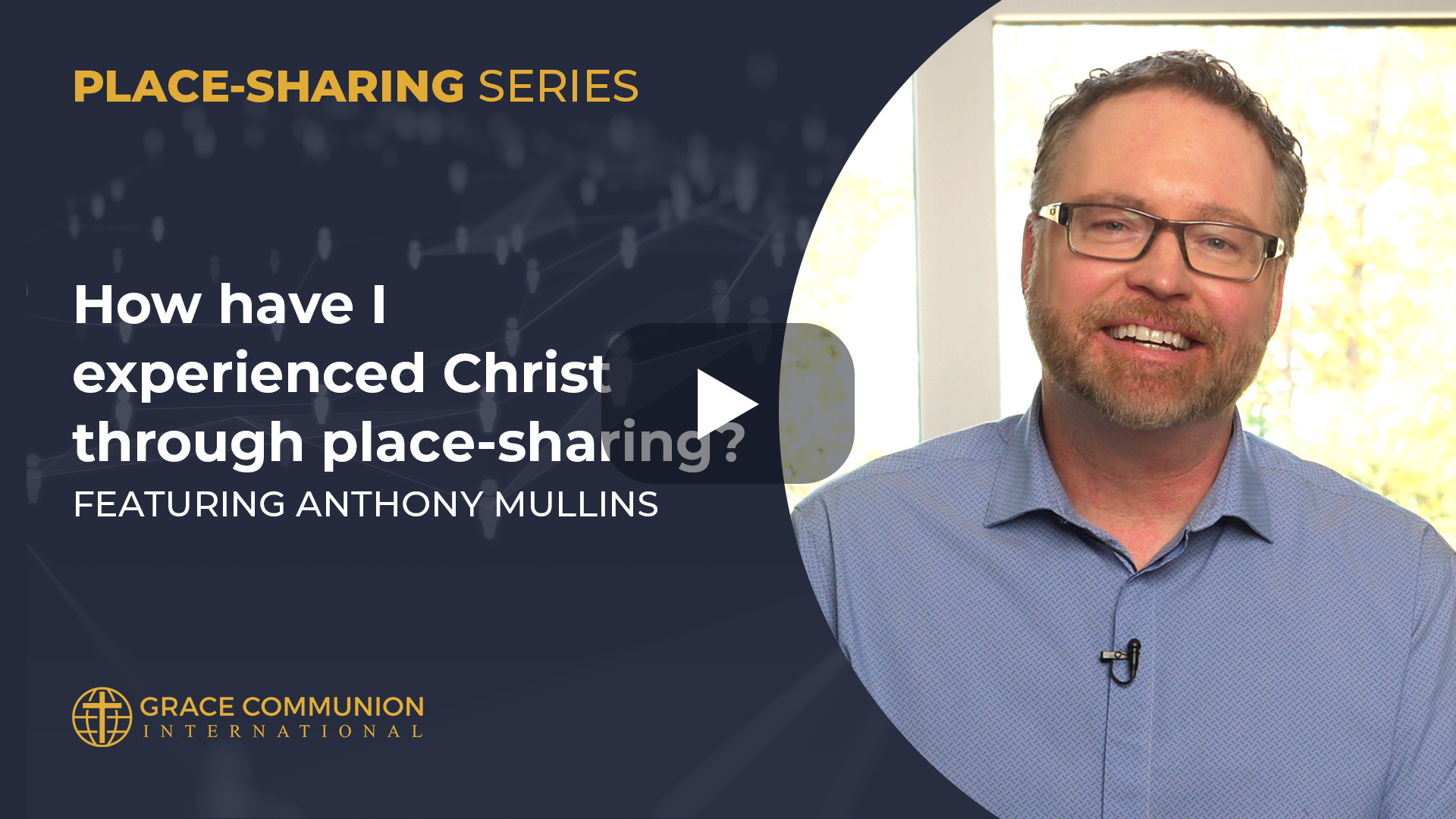
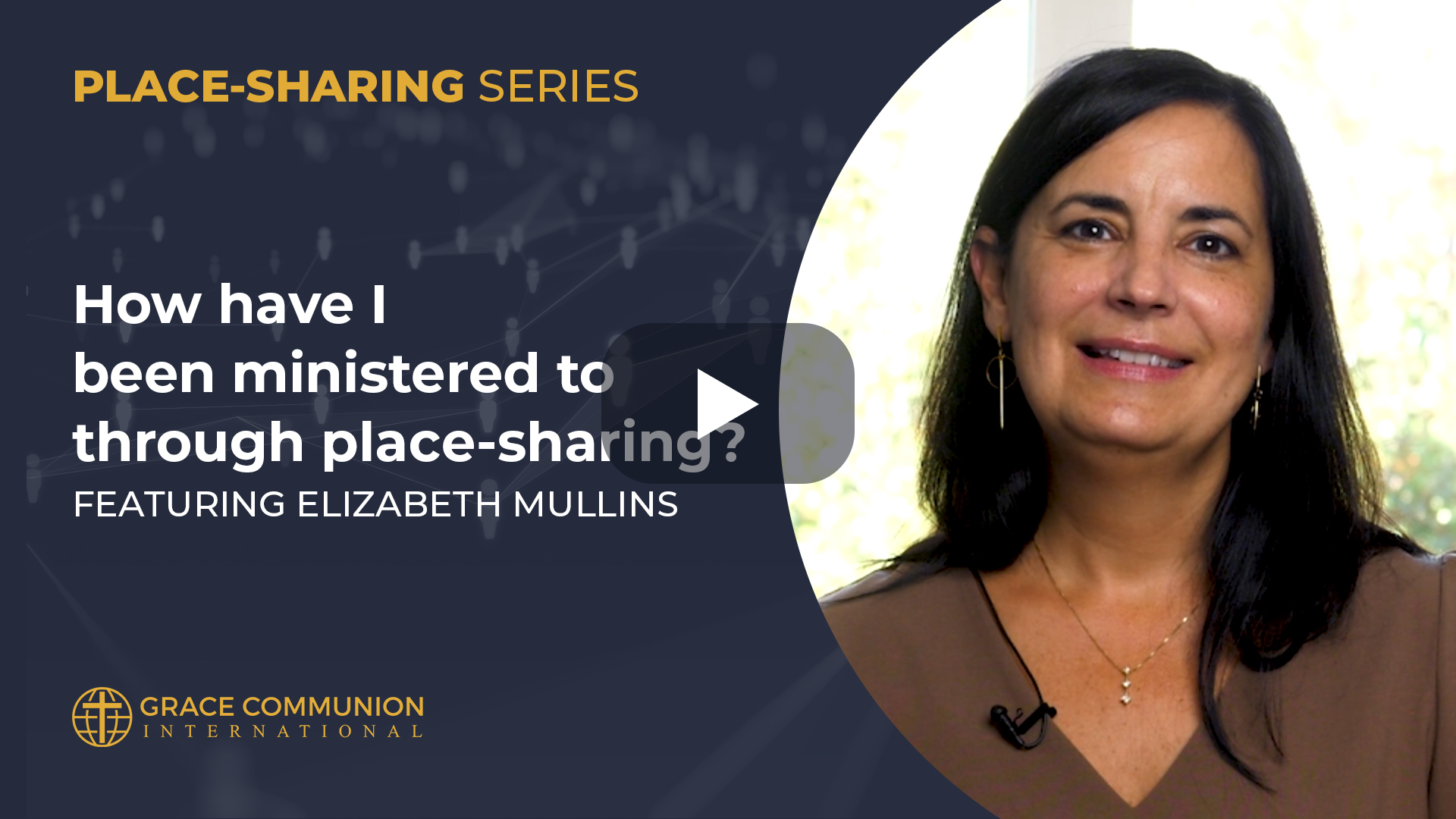
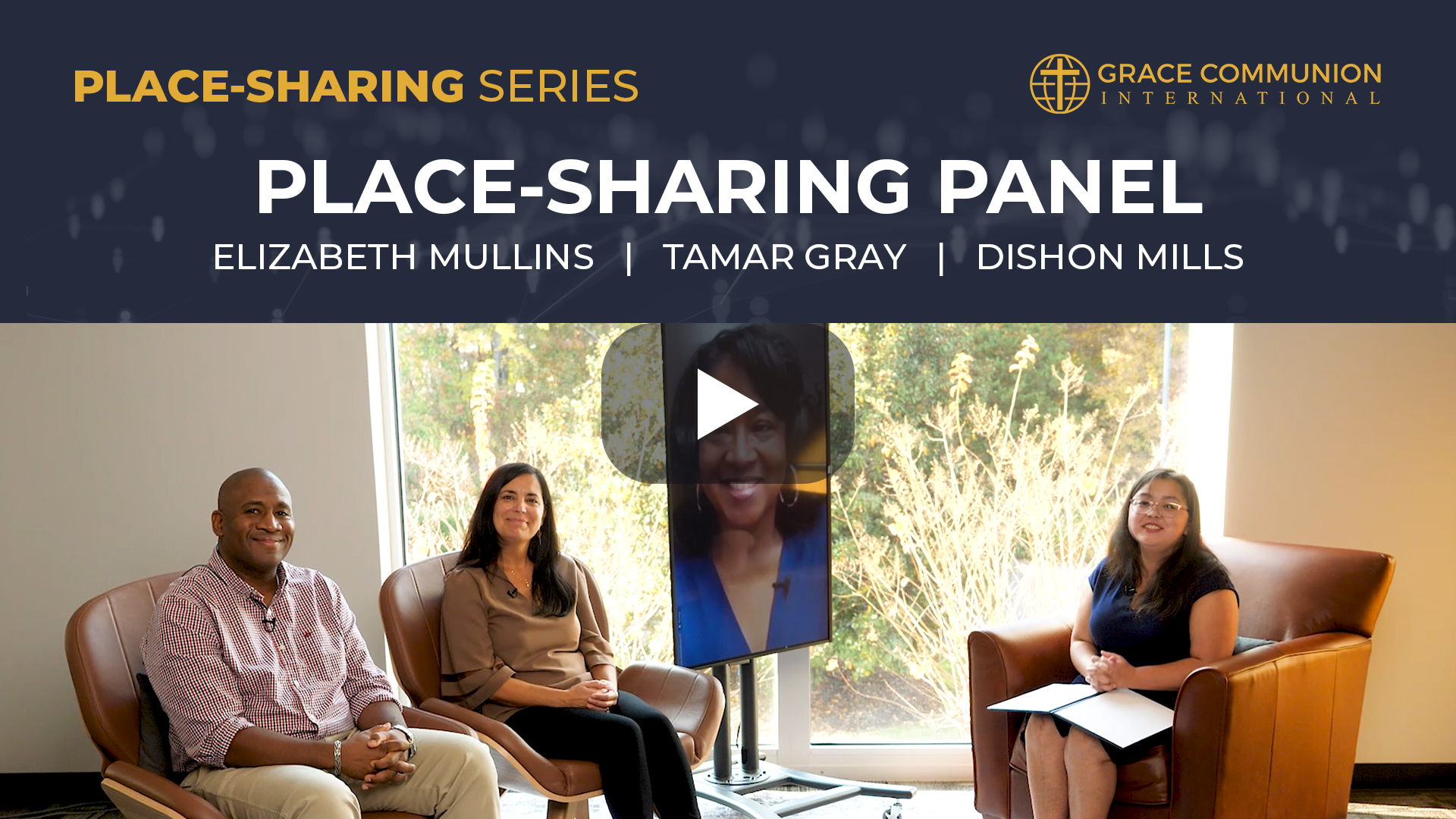
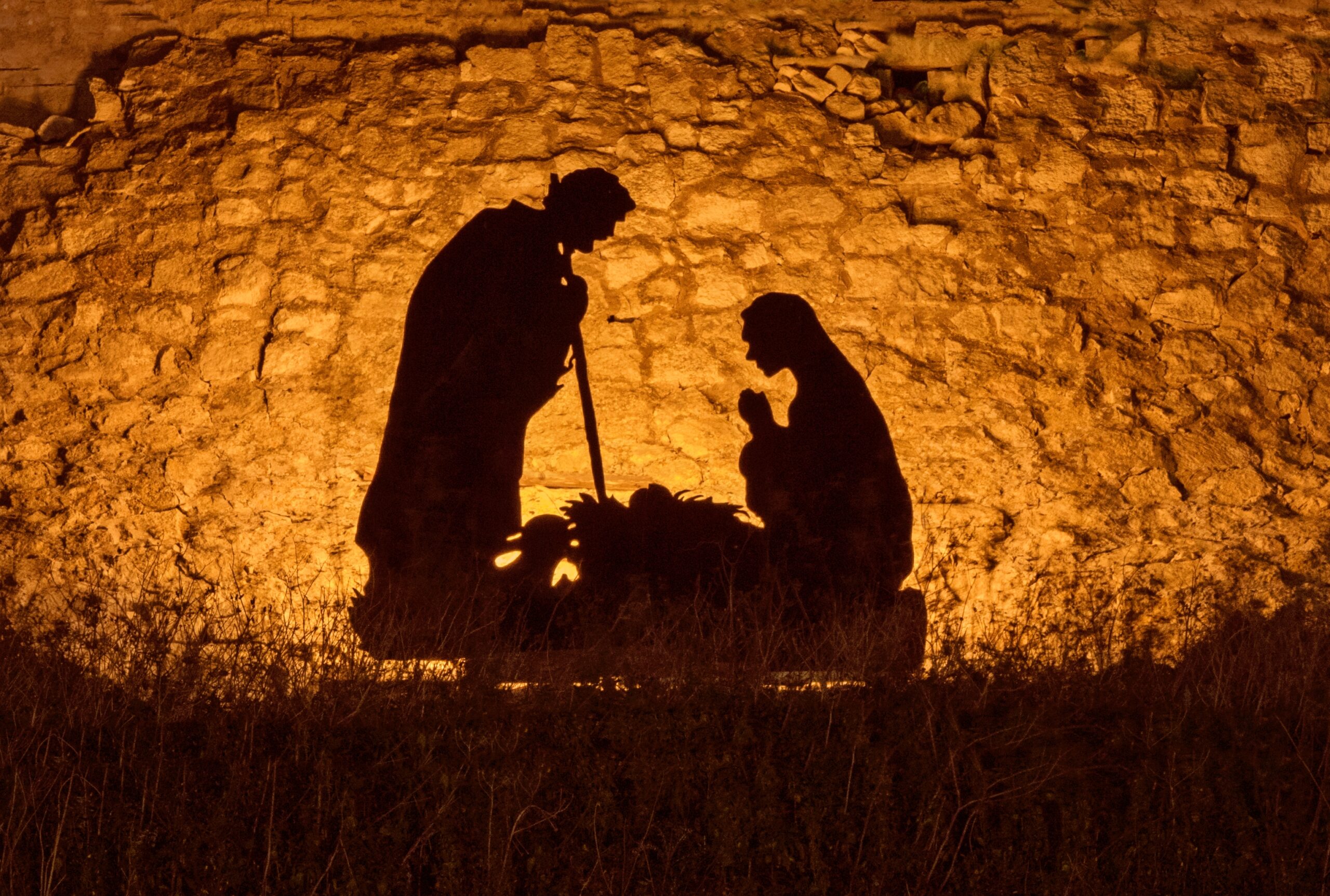


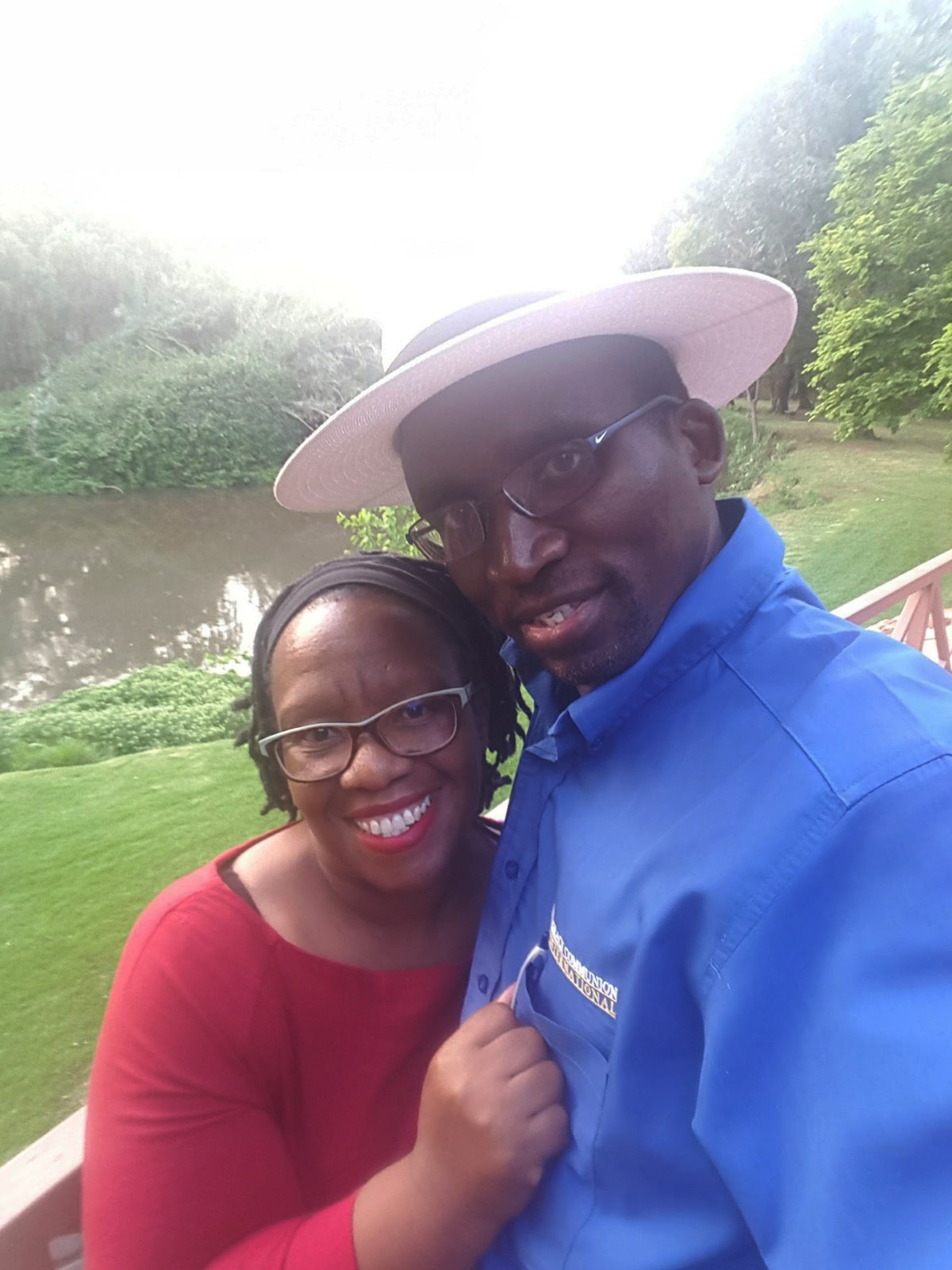 “[It’s] about promoting the collective activity of the church community in the Love Avenue, rather than limiting this to individuals … We should do it collectively because there is a sense in the sending when Jesus said to Peter, he wants to make him fisher of men … [that] the kind of fishing Peter was used to was through nets. It was mass fishing. There was no going alone. You go with others because to man a fishing boat, the nets, and everything, you need somebody else. It’s not something that you do alone. So, they were always in groups in these boats, and they’d throw out the nets as a group.
“[It’s] about promoting the collective activity of the church community in the Love Avenue, rather than limiting this to individuals … We should do it collectively because there is a sense in the sending when Jesus said to Peter, he wants to make him fisher of men … [that] the kind of fishing Peter was used to was through nets. It was mass fishing. There was no going alone. You go with others because to man a fishing boat, the nets, and everything, you need somebody else. It’s not something that you do alone. So, they were always in groups in these boats, and they’d throw out the nets as a group. 



